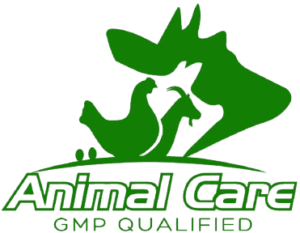Main Text
1. Definition
Newcastle Disease (ND) is a contagious disease caused by the Newcastle Disease Virus (NDV), which affects various bird species, particularly chickens, ducks, and turkeys. The virus leads to respiratory, neurological, and digestive symptoms, often resulting in high mortality rates and severe economic losses for farmers. ND is classified into low, moderate, and highly pathogenic types depending on the virus’s virulence.
2. Causes
NDV spreads primarily through airborne transmission. Infected birds release the virus through respiratory secretions and feces, contaminating the surrounding environment. Overcrowded conditions, poor sanitation, and lack of effective biosecurity measures increase the risk of ND outbreaks.
3. Symptoms
The clinical presentation of ND varies depending on the strain of the virus, but common symptoms include:
- Respiratory Symptoms: Rapid breathing, coughing, sneezing.
- Neurological Symptoms: Twisted neck (torticollis), unsteady gait, paralysis.
- Digestive Symptoms: Diarrhea, greenish feces.
- Drop in Egg Production: Thin-shelled, misshapen eggs, and a significant drop in production.
- High Mortality Rates: Highly pathogenic strains can lead to mass deaths in birds.
4. Transmission
ND spreads through multiple pathways:
- Airborne Transmission: Virus particles are spread through respiratory secretions, which transmit rapidly in densely populated environments.
- Contact Transmission: Contaminated feed, water, equipment, or even workers’ clothing and shoes can further spread the virus.
- Vertical Transmission: In some cases, infected hens can transmit the virus to their offspring via eggs.
5. Prevention and Control Measures
Effective ND prevention focuses on enhancing immunity and improving farm management. Key measures include:
- Regular Feeding of Herbal Plant Extracts: Providing poultry with regular doses of herbal plant extracts containing traditional medicinal ingredients can effectively boost immunity and reduce the risk of disease outbreaks. Mascot offers plant-based extracts formulated with natural ingredients like Astragalus and Codonopsis, which enhance the birds’ immune system and improve their stress resistance.
- Biosecurity Management: Strengthen biosecurity measures by restricting the entry of external personnel and equipment, regularly disinfecting the environment, and installing disinfection stations. Maintaining a clean farm environment reduces the risk of viral transmission.
- Environmental Management: Ensure proper ventilation, regularly clean and disinfect poultry houses, and avoid overcrowding. Providing a healthy environment helps minimize the spread of NDV.
- Isolation of Infected Birds: Immediately isolate any infected birds and thoroughly disinfect their environment to prevent further viral spread.
6. Treatment Plan
Although there is no specific antiviral treatment for ND, supportive therapies and integrated management can help alleviate symptoms, boost immunity, and prevent secondary infections. Key treatment options include:
- Antibiotic Therapy: While antibiotics do not treat the virus directly, they can prevent secondary bacterial infections, such as E. coli or Staphylococcus infections, which reduces mortality. Common antibiotics like enrofloxacin or tylosin should be used under veterinary guidance.
- Electrolyte Supplementation: Infected birds may suffer from dehydration due to loss of appetite and digestive issues. Adding electrolytes and vitamins to drinking water helps restore hydration and strengthens the immune system.
- Nutritional Support: Provide high-energy, easily digestible feed, and supplement with vitamins A, E, and C to boost the immune system and accelerate recovery.
- Herbal Plant Extracts (Traditional Veterinary Medicine): Using herbal plant extracts has proven effective in boosting immunity and improving birds’ resistance to viral infections. Natural components such as Astragalus, Codonopsis, and Licorice can help birds recover faster and reduce stress responses. Mascot‘s herbal veterinary products offer strong immune support for poultry.
- Immunomodulators: In some cases, immunomodulators can be used to further enhance the birds’ immune response, helping them fight off the virus more effectively.
Conclusion
Newcastle Disease is a serious threat to poultry farming due to its high contagion and mortality rates, particularly in regions with poor biosecurity and vaccination practices. Although there is no direct cure, integrated prevention strategies—such as regular feeding of herbal plant extracts, strong biosecurity measures, and good farm management—can significantly reduce the incidence of ND. With proper care, including supportive treatments, poultry farms can improve flock health and maintain productivity. Mascot products offer essential support in these areas, helping farmers protect their birds and enhance farm outcomes.




